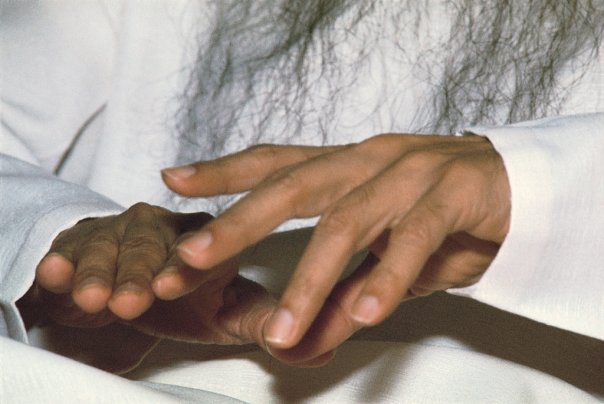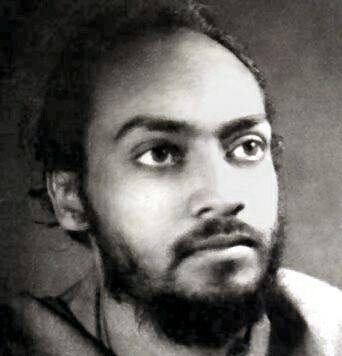Osho Quotes on Emotions
- Emotions cannot be Permanent. That’s why they are called “emotions”; the word comes from “motion,” movement. They move; hence, they are emotions. From one to another you continuously change. This moment you are sad, that moment you are happy; this moment you are angry, that moment you are very compassionate; this moment you are loving, another moment full of hatred; the morning was beautiful, the evening is ugly. This goes on.
- When you think, you can’t see reality as it is, because your thinking becomes a barrier. Your thinking colours reality. When you feel, then too you cannot see reality as it is, because your eyes are full of tears and your heart is full of emotions. When thinking and feeling both disappear, only then the contact — the contact with truth.
- Nature has not made any distinction: there are as many tear glands in male eyes as there are in female eyes. Tears are needed; tears do miracles. But repressing the tears is a subtle strategy to repress emotions. Tears are deep down connected with the heart. Heads don’t cry, only hearts. Repressing the tears is a subtle trick to repress the heart.
- These are the only two real emotions — fear and love. If you don’t love, you will be in fear. If you are in fear, you cannot love. If you love, fear is impossible.
- Science is confined to the head, reason, logic. The heart is confined to feelings, emotions, sensitivities. But the being is beyond both. It is pure silence — no thinking, no feeling. And only the man who knows his being is authentically religious. The heart is only a stopover.
- Bodhi means becoming alert of who you are, becoming alert that, “I am a witness of all that happens. I am a witness of the world, a witness of my thoughts, a witness of my emotions. Basically I am only a witness, a mirror that reflects everything but remains uncontaminated by the reflections, a mirror that gathers no experiences, a mirror whose very nature is innocence.” To know this is bodhi; it is awakening. Then life has a totally different texture, a totally different taste. Then it has the taste of tao. Then it has the texture of the divine, and then it has the fragrance of immortality. Sannyas is a search for it.
- Crying and weeping is a natural way, a safety valve, to allow accumulated emotions — sadness, to be thrown out of the system: it is a deep cleansing. Every man and every woman should learn how to cry perfectly. And how to enjoy it! It is such an unburdening and refreshing process; not only do your eyes become fresh when tears have flowed, your whole being becomes pure, simple, innocent. You attain again to a virginity that belonged once to you, but is lost, you again become uncorrupted. After a good crying and weeping you feel bathed, the very soul has taken a shower. You are again ready and younger.
- So many so-called saints are really schizophrenic — they cannot laugh. And if you cannot laugh, how can you weep? how can you cry? Both become impossible. When laughter and crying are impossible, your heart is completely dosed. You don’t have any emotions, you start living only in the head. Your whole reality consists of thoughts. Thoughts are dry — they cannot bring laughter, they cannot bring tears. Tears and laughter come from the heart. And clarity is not of the mind, clarity is of the heart. Confusion is of the mind.
- Real life starts only when you start feeling. But feeling looks like madness to the head. It represses feeling, emotions, sentiments — and they are the real juices of life. Through them one comes closer to god, and only through them. God is not a concept but the uttermost orgasmic experience of love. When one can feel one with the whole existence, that experience is god. It is making love to the whole, it is being loved by the whole. It is a love experience. That’s why Jesus said ‘God is love.’ It is literally so — it is not a metaphor.
- Once love is pure it is no more passion, it becomes compassion. So between two opposite moods, two opposite emotions, two opposite tendencies, there is always a point which transcends both. It is exactly in the middle and beyond also.
- Unguilt; drop all guilt! Whatsoever you are, whosoever you are, wheresoever you are, God has accepted you. When God has accepted you, why be worried?. — accept yourself. Start living your life not through concepts; start living your life through your feelings, emotions, your body. Start living life as if you were never corrupted by any society, as if you have just come new into the world directly from God’s hands and nobody has taught you anything. Start living: that life is the real life. Then you listen to your own heart, you listen to your body. You don’t repress, you try to understand; and through understanding is transformation.
- The heart is also a mechanism — different from the head. You can call the head the logical instrument; you can call the heart the emotional instrument. Out of the head all the philosophies, all the theologies are created; out of the heart, come all kinds of devotion, prayer, sentimentality. But the heart also goes round and round in emotions. The word “emotion” is good. Watch… it consists of motion, movement. So the heart moves, but the heart is blind. It moves fast, quick, because there is no reason to wait. It does not have to think, so it jumps into anything. But truth is not to be found by any emotionality. Emotion is as much a barrier as logic.
- The third center, manipura, is the center of all your sentiments, emotions. We go on repressing our emotions in the manipura. It means the diamond — life is valuable because of sentiments, emotions, laughter, crying, tears and smiles. Life is valuable because of all these things. These are the glory of life — hence the chakra is called manipura, the diamond chakra.
- Love is emotional: trust is intuitive. Emotions go on changing every moment — they are in a flux; you cannot rely upon them — but trust can become a great foundation. Love helps you to reach to the place where trust is possible. Without love, trust is not possible. Love is almost like a bridge which can collapse any moment but still it is a bridge. If you use it, it can take you to trust; without it, you cannot reach to trust directly. So love is a necessity, but love unto itself is not enough. Its use is as a means; the end is trust.
- Deva means divine, rasika means a lover — a lover of god, a lover of the divine. Religion is a matter of love; it is not a question of thinking. It has nothing to do with logic, reasoning and the head, nothing at all. But it has all to do with the heart, with feeling, with emotions, with love. Religion is closer to poetry than to mathematics. Poetry has something of the religious in it; mathematics has none. And unless one is a lover, one will never know; the knowing comes through loving.
- The witness is neither the mind nor the heart. Mind is a division which thinks, and heart is another division of the same mind which feels. Feeling and thinking, thoughts and emotions… but witnessing is separate from both. Whether you are thinking, the watcher watches… a thought is passing by, or you are feeling angry — the witness still watches. An emotion is passing by, just like clouds pass and you see them. You are neither the good nor the bad. You are neither the pleasant nor the unpleasant. You are neither the thought nor the emotions. .You are neither the mind nor the heart.



